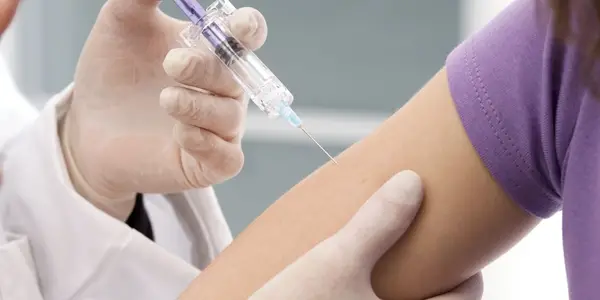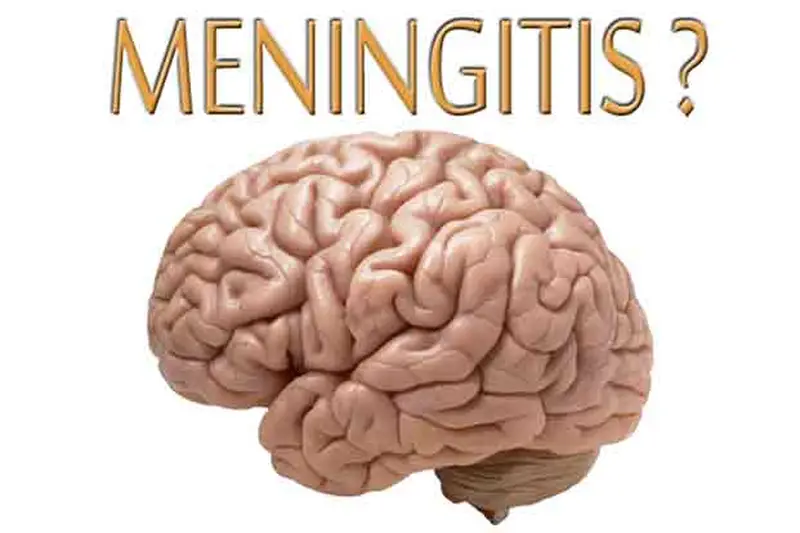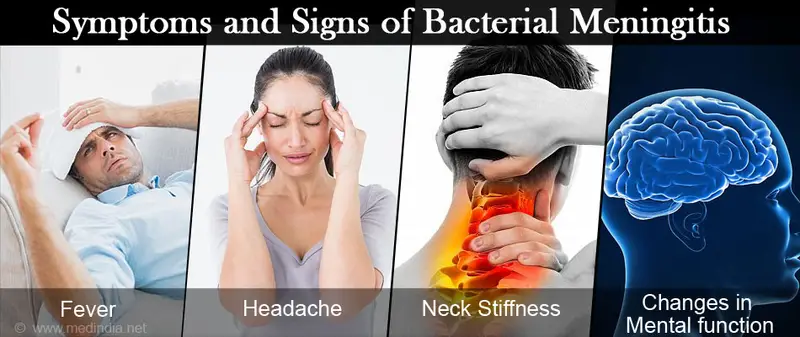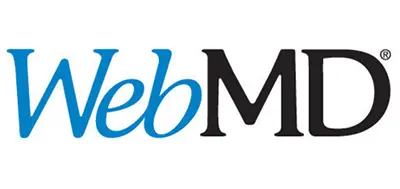Meningitis Vaccine
Get In Touch
Call Now
Monday to Friday
9:00 AM To 6:00 PM
Saturday and Sunday
Closed

Meningitis
Meningitis is a bacterial infection of the membranes covering the brain and spinal cord (meninges). The swelling from meningitis typically triggers symptoms such as headache, fever and a stiff neck.
Causes
- The most common causes of meningitis are Viral infections that usually get better without treatment.
- However, Bacterial meningitis infections are extremely serious, and may result in death or brain damage, even if treated.
- Other causes: Chemical irritation, Drug allergies, Fungi, Parasitic and Tumors.
- Viral meningitis is milder and occurs more often than bacterial meningitis. It usually develops in the late summer and early fall, and often affects children and adults under age 30.
- Most infections occur in children under age 5. Most viral meningitis is due to enteroviruses, which are viruses that also can cause intestinal illness.
- Many other types of viruses can cause meningitis. For example, viral meningitis can be caused by herpes viruses, the same virus that can cause cold sores and genital herpes (although people with cold sores or genital herpes are not at a greater risk of developing herpes meningitis).
Symptoms
- Symptoms usually come on quickly
- Fever and chills Nausea and vomiting Sensitivity to light Severe headache Stiff neck
- Meningitis is an important cause of fever in children and newborns.
- Seek immediate medical care if you or someone in your family has meningitis symptoms, such as:
- Fever, Severe unrelenting headache, Confusion, Vomiting, Stiff neck
- Bacterial meningitis is serious and can be fatal within days without prompt antibiotic treatment. Delayed treatment increases the risk of permanent brain damage or death.
Signs and tests
- Physical examination will usually show:
- Fast heart rate Fever Mental status changes Stiff neck
- For any patient who is suspected of having meningitis, it is important to perform a lumbar puncture (“spinal tap“), in which spinal fluid (known as cerebrospinal fluid, or CSF) is collected for testing.
Treatment
- Antibiotics for bacterial meningitis. The type will vary depending on the bacteria causing the infection. Antibiotics are not effective in viral meningitis.
- Other medications and Intravenous fluids will be used to treat symptoms such as brain swelling, shock, and seizures.
- Some people may need to stay in the hospital, depending on the severity of the illness and the treatment needed.
- It’s also important to talk to your doctor if a family member or someone you work with has meningitis. You may need to take medications to prevent getting the infection.
Expectations (prognosis)
- Early diagnosis and treatment of bacterial meningitis is essential to prevent permanent neurological damage.
- Viral meningitis is usually not serious, and symptoms should disappear within 2 weeks with no lasting complications.
Complications
Meningitis complications can be severe. The longer you or your child has the disease without treatment, the greater the risk of seizures and permanent neurological damage, including:
| Brain damage | Buildup of fluid between the skull and brain | Hearing Loss | Seizures | Gait problems |
| Memory difficulty | Learning disabilities | Kidney failure | Shock | Death |
If you think that you or your child has symptoms of meningitis, get emergency medical help immediately. Early treatment is key to a good outcome.
Prevention & Vaccination
Prevention
- Common bacteria or viruses that can cause meningitis can spread through coughing, sneezing, kissing, or sharing eating utensils, a toothbrush.
- These steps can help prevent meningitis:
- Practice good hygiene. Don’t share drinks, foods, straws, eating utensils, lip balms or toothbrushes with anyone else.
- Teach children and teens to avoid sharing these items too.
- Wash your hands. Careful handwashing helps prevent the spread of germs. Teach children to wash their hands often, especially before eating and after using the toilet, spending time in a crowded public place or petting animals. Show them how to vigorously and thoroughly wash and rinse their hands.
- Stay healthy. Maintain your immune system by getting enough rest, exercising regularly, and eating a healthy diet with plenty of fresh fruits, vegetables and whole grains.
- Cover your mouth. When you need to cough or sneeze, be sure to cover your mouth and nose.
- If you’re pregnant, take care with food. Reduce your risk of listeriosis by cooking meat, including hot dogs and deli meat, to 165 F (74 C). Avoid cheeses made from unpasteurized milk. Choose cheeses that are clearly labeled as being made with pasteurized milk.
Immunization
- Hemophilus vaccine Type b HIB Vaccine in children will help prevent one type of meningitis.
- Children in the United States routinely receive this vaccine as part of the recommended schedule of vaccines, starting at about 2 months of age. The vaccine is also recommended for some adults, including those who have sickle cell disease or AIDS and those who don’t have a spleen.
- Pneumococcal conjugate vaccine (PCV13).
- This is now a routine childhood immunization younger than 2 years in the United States and is very effective at preventing pneumococcal meningitis.
- Additional doses are recommended for children between the ages of 2 and 5 who are at high risk of pneumococcal disease, including children who have chronic heart or lung disease or cancer.
- This vaccine can also be given to children between the ages of 2 months and 10 years who are at high risk of bacterial meningitis or who have been exposed to someone with the disease. It’s also used to vaccinate healthy but previously unvaccinated people who have been exposed in outbreaks.
- Pneumococcal polysaccharide vaccine (PPSV23). Older children and adults who need protection from pneumococcal bacteria may receive this vaccine.
- The CDC recommends the PPSV23 vaccine for all adults older than 65; for younger adults and children age 2 and older who have weak immune systems or chronic illnesses such as heart disease, diabetes or sickle cell anemia; and for anyone who doesn’t have a spleen.
- Meningococcal Conjugated vaccination is recommended for:
- Adolescents ages 11 – 12 and adolescents entering high school (about age 15) who have not already received the vaccination.
- CDC recommends that a single dose be given to children ages 11 to 12, with a booster shot given at age 16.
- All college freshmen who have not been vaccinated and are living in dorms.
- Children age 2 and older who do not have their spleen or who have other problems with their immune system.
- Those traveling to countries where diseases caused by meningococcus are very common (ask your doctor).
- Some communities conduct vaccination campaigns after an outbreak of meningococcal meningitis.
- Household members and others in close contact with people who have meningococcal meningitis should receive preventive antibiotics to avoid becoming infected themselves.
Travel as a Risk Factor
- CDC recommends meningococcal conjugate (MenACWY) vaccination for people traveling to or living in the meningitis belt in sub-Saharan Africa.This area of Africa has much higher rates of disease than the United States and outbreaks are common.
- The disease is most common in these countries during the dry season (December through June).
- Travelers who spend a lot of time with local populations, especially during outbreaks, have the highest risk of getting sick.
- Saudi Arabia requires participants in the annual Hajj and Umrah pilgrimage show proof of meningococcal vaccination. No other countries require meningococcal vaccination prior to travel.
Vaccinated travelers who continue to be at increased risk should receive booster doses.

CDC will issue advisories for travelers to other countries as needed. Learn more about Travel Health Notices.
CDC does not routinely recommend serogroup B meningococcal vaccination before international travel.
Bacterial meningitis
- Bacteria that enter the bloodstream and travel to the brain and spinal cord cause acute bacterial meningitis. But it can also occur when bacteria directly invade the meninges. This may be caused by an ear or sinus infection, a skull fracture, or, rarely, after some surgeries.
- Several strains of bacteria can cause acute bacterial meningitis, most commonly:
- Streptococcus pneumoniae (Pneumococcus). This bacterium is the most common cause of bacterial meningitis in infants, young children and adults in the United States. It more commonly causes pneumonia or ear or sinus infections. A vaccine can help prevent this infection.
- Neisseria meningitidis (Meningococcus). This bacterium is another leading cause of bacterial meningitis. These bacteria commonly cause an upper respiratory infection but can cause meningococcal meningitis when they enter the bloodstream. This is a highly contagious infection that affects mainly teenagers and young adults. It may cause local epidemics in college dormitories, boarding schools and military bases. A vaccine can help prevent infection.
- Hemophilus influenzae (Hemophilus). Hemophilus influenzae type b (Hib) bacterium was once the leading cause of bacterial meningitis in children. But new Hib vaccines have greatly reduced the number of cases of this type of meningitis.
- Listeria monocytogenes (Listeria). These bacteria can be found in unpasteurized cheeses, hot dogs and lunchmeats. Pregnant women, newborns, older adults and people with weakened immune systems are most susceptible. Listeria can cross the placental barrier, and infections in late pregnancy may be fatal to the baby.
- Viral meningitis Viral meningitis is usually mild and often clears on its own. Most cases in the United States are caused by a group of viruses known as enteroviruses, which are most common in late summer and early fall.Viruses such as herpes simplex virus, HIV, mumps, West Nile virus and others also can cause viral meningitis.
Chronic meningitis
- Acute Fungal meningitis is relatively uncommon and causes chronic meningitis.
- It may mimic acute bacterial meningitis.
- Fungal meningitis isn’t contagious from person to person.
- Cryptococcal meningitis is a common fungal form of the disease that affects people with immune deficiencies, such as AIDS. It’s life-threatening if not treated with an antifungal medication.
- Other meningitis causes: Meningitis can also result from noninfectious causes, such as Chemical Reactions, Drug Allergies, Some types of Cancer and Inflammatory Diseases such as Sarcoidosis.

Risk factors Risk factors for meningitis include:

- Skipping vaccinations. Risk rises for anyone who hasn’t completed the recommended childhood or adult vaccination schedule.
- Age. Most cases of viral meningitis occur in children younger than age 5. Bacterial meningitis is common in those under age 20.
- Living in a community setting. College students living in dormitories, personnel on military bases, and children in boarding schools and child care facilities are at greater risk of meningococcal meningitis. This is probably because the bacterium is spread by the respiratory route, and spreads quickly through large groups.
- Pregnancy. Pregnancy increases the risk of listeriosis — an infection caused by listeria bacteria, which may also cause meningitis. Listeriosis increases the risk of miscarriage, stillbirth and premature delivery.
- Compromised immune system. AIDS, alcoholism, diabetes, use of immunosuppressant drugs and other factors that affect your immune system also make you more susceptible to meningitis. Having your spleen removed also increases your risk, and anyone without a spleen should get vaccinated to minimize that risk.
What Patients Say
Our Testimonials
Why patients trust Dr. Farah with their health

Came in with a headache and started to feel sick. Had a big trip for New Years, therefore I had to solve my problems quickly. Dr. Farah helped me right away and treated all my problems, he saved my weekend. Will come here again soon.
Melanie Warner

I was in a lot of pain and I walked in and the receptionist was so lovely. I was into see the doctor within five minutes and he listened to me and was wonderful. I’ve been to a few urgent cares and this one by far is the best !
Tiffany Lee-Frank

I absolutely love Dr Farah and his whole staff on the medical and the spa side. I’m not just saying this, Dr Farah has been my doctor over 10 years and I’ve been using his Rejuvenate spa for about 4 years now. I would give them 10 stars if I could!!!
Lori Brooks

Ashley and Anna are friendly and made me feel welcome and at ease. Dr. Farah was very understanding and answered all my stupid questions. They were all very professional and patient with me.
juli ross
Providing Urgent Care for non-life-threatening health complications

Urgent care services
Monday to Friday
9:00 AM To 6:00 PM
Saturday and Sunday
Closed
17130 Ventura Boulevard,
Encino California 91316






